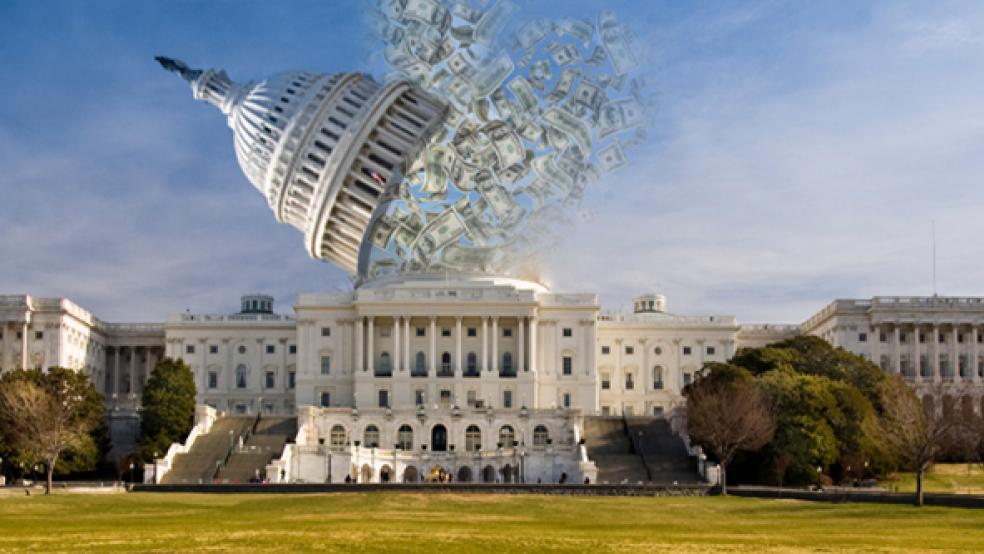President Trump cheered the strong economy in his State of the Union address and proposed big ideas from border security to curing cancer. What he did not mention was the deteriorating fiscal health of the country.
The Congressional Budget Office recently released its annual budget forecast intended to guide Washington’s spending and tax decisions. This year’s report describes a fiscal outlook for the next decade so grim it could have been delivered to Congress in an ambulance.
The list of alarming statistics in CBO’s report is too long to recount them all, but consider these: Annual spending growing from $4 trillion to $7 trillion over the coming decade, and debt growing from $21 trillion to $31 trillion. Trillion-dollar deficits are just around the corner and they will be here to stay.
Numbers this large are unrelatable for most people, but here’s a good way to illustrate the problem: Last year, for every household in America, the federal government collected $26,000 in taxes but spent $32,000, and added $6,000 to the credit card that already had a $168,000 balance.
This grim fiscal picture just gets worse from here on out. That’s because this is a structural problem caused by permanent and growing spending.
Social Security and Medicare are the biggest drivers of this explosive spending, caused by the retirement of the Baby Boomers, people living longer in retirement, growth in benefits and increasing health care costs.
According to the report, Social Security and Medicare alone are responsible for $12 trillion in new spending and about 85 percent of total new debt.
Why should you care? Several reasons. First, growing spending and debt mean slower economic growth. That may sound esoteric, but it boils down to fewer jobs, lower wage growth and higher costs to start a new business or expand an existing one. It means higher barriers to opportunity for American families and entrepreneurs.
Second, this high debt makes it more likely that the country will experience a fiscal or financial crisis where a severe economic shock could rock the country. The last financial crisis was bad enough, but this one would be caused by big bets made by politicians that they would never have to pay for all the spending they promised.
Lastly, this unhealthy fiscal outlook means that lawmakers have little room to deal with pressing priorities that could emerge, such as defending the country from foreign aggression. It will also crowd out constitutional government functions like law enforcement and the judiciary.
Ironically, CBO’s report comes at a time when several high-profile politicians are unveiling massive spending plans that would add trillions in new spending every year, among them the Green New Deal, Medicare for All and “free” college. The simple fact is we can’t afford the programs we have now, much less new ones costing tens of trillions more!
Won’t higher taxes solve the problem? Not according to Brian Riedl of the Manhattan Institute. Riedl found the combined payroll tax you and your employer pay would need to more than double from 15.3 percent to 33.5 percent. This would only stabilize debt, not balance the budget.
Alternatively, a European-like value-added tax on all purchases we make would have to be 17 percent, again just to tread water. Plus, either tax would need to be continually increased to keep up with spending.
We cannot grow or tax our way out of this problem. The only way to prevent the coming fiscal calamity is to reshape federal spending programs, including Social Security and Medicare, so they work better and are affordable for all Americans.
Washington has more than an opportunity to tackle this issue — it has an obligation. Will it deliver?
The president’s 2020 budget will be unveiled next week and Congress must pass a budget resolution in April. More happy talk will not turn around that budget ambulance. It’s time for a serious conversation about government spending. The future health of our nation depends on it.
Alison Acosta Winters is a senior policy fellow at Americans for Prosperity, an issue advocacy organization that is part of the Koch network.





